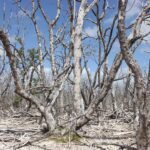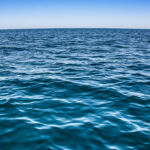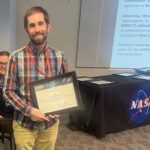By Chris Riotta
On Wednesday, January 30, former Senator of Maryland Joe Tydings spoke at the University of Maryland on the restoration of the Chesapeake Bay.
The discussion was hosted by the Maryland Institute for Applied Environmental Health and included an audience largely comprised by School of Public Health graduate students.
The former Senator of Maryland is a graduate of the University of Maryland, as well as the University of Maryland Law School. He now serves on the University of Maryland Medical System Board and works with colleagues in passing legislation to improve current pollution laws regarding the Chesapeake area.
“You’re all in an incredibly important area,” said Senator Tydings. “That is, the relationship of public health and the environment.”
Senator Tydings’ discussion focused on the worsening pollution in the air and water of the Chesapeake Bay, as well as its correlation to the surrounding community’s overall health. “In my judgment, the political leaders…who are supposed to be fighting for our rights as constituents are not,” said Senator Tydings.
The discussion included a review of several controversial laws surrounding farmers within the state of Maryland and certain loopholes that allow them to create pollution and harm to the environment. Senator Tydings says that current laws that are allowing the environment to be weakened are in place to make farmers more prosperous.
“There comes a time when farming should be done properly in order to protect the Chesapeake,” said Tydings.
The Senator concluded his discussion by emphasizing the need for younger generations to come forward and bring action toward restoring the Chesapeake Bay.
Tydings expressed his gratitude toward the graduate students whom attended the event, acknowledging their efforts in researching the bay and solutions to certain pollutions and disease.
He also acknowledged current State of Maryland governor Martin O’Malley’s efforts to restore Maryland’s environment. O’Malley is currently pushing for legislation on septic tanks to help improve the Chesapeake Bay’s ecosystem.





